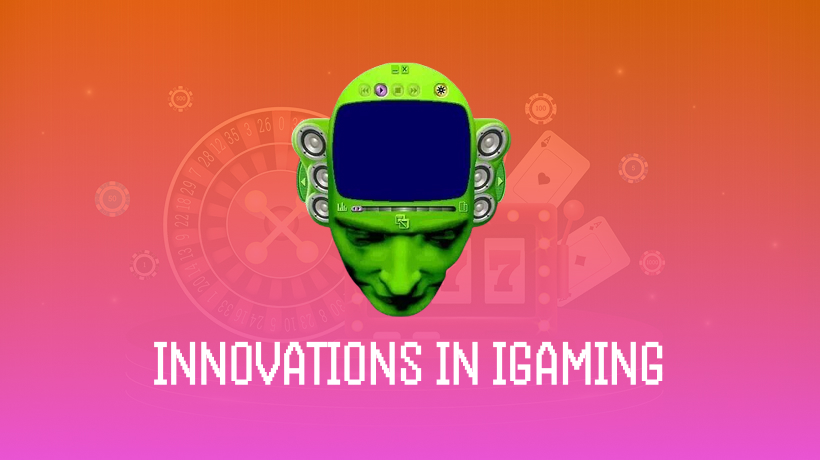How Technology is Making Online Gaming Safer and Fairer for Everyone
The anonymity of online play, combined with 24/7 accessibility and instant transactions, creates unique challenges that don’t exist in traditional gaming venues.
Players can lose track of time and money more easily. The speed of online games means losses can accumulate rapidly, often before someone realizes they’re in trouble.
That’s where innovation steps in. The iGaming industry is investing heavily in technologies and strategies designed to protect players, ensure fair play, and promote responsible gaming. These aren’t just compliance checkboxes, they’re genuine efforts to create an environment where you can play with confidence.
Technology-Driven Player Protection
Protecting players starts with robust technology working quietly in the background. Modern iGaming platforms deploy multiple security layers, from verifying identities to ensuring game fairness.
Keeping Games Fair and Honest
Every fair online game relies on Random Number Generators (RNGs), complex algorithms that produce genuinely unpredictable outcomes. Whether it’s a card deal, dice roll, or slot spin, RNGs ensure nobody can manipulate results. These aren’t simple random number generators. Modern RNGs use cryptographic algorithms that are virtually impossible to predict or hack.
But operators don’t just claim fairness. They submit their systems to independent testing agencies for rigorous certification:
- eCOGRA – Tests and certifies game fairness and player protection standards, founded in 2003 and internationally recognized
- Gaming Laboratories International (GLI) – Provides compliance testing and certification across multiple jurisdictions
- iTech Labs – Conducts RNG testing and certification audits with over 100 years of combined team experience
The certification process is extensive. Testing agencies run millions of simulated game rounds, sometimes over 100 million spins for slot games, to verify that outcomes match theoretical probabilities. They examine the source code, test for patterns, and ensure the RNG can’t be manipulated by external factors.
Betsson ensures its RNG undergoes independent testing and approval. Platforms like GoldBet.it and Lottomatica.it hold Global Gambling Guidance Group (G4) certification, which includes regular audits of their fair play systems. IGT was the first gaming supplier to achieve G4 accreditation for both casino and lottery operations.
Verifying Identity and Preventing Fraud
Age and identity verification form the foundation of player protection:
- Government-issued ID submission (passports, driver’s licenses)
- Cross-referencing with official databases and credit bureaus
- Know Your Customer (KYC) processes to confirm identity
- Anti-Money Laundering (AML) checks to prevent financial crimes
Lottomatica’s DAISY (Data Identification System) performs real-time AML checks, flagging suspicious activity instantly.
Modern fraud detection uses advanced technology to spot problems before they cause harm. Neural networks analyze player behavior patterns in real-time, looking for anomalies. Playtech’s SMART Platform uses specialized algorithms for live fraud detection, spotting unusual connections between accounts or suspicious patterns that might indicate collusion or fraud.
Securing Your Data and Finances
iGaming companies invest heavily in cybersecurity infrastructure:
- Encryption – Scrambles sensitive data using military-grade algorithms
- Firewalls – Block malicious traffic through multi-layered defense systems
- ISO 27001 certification – Lottomatica Group holds ISO 27001 certifications for its data centers, a globally recognized standard for information security
- Continuous monitoring – Real-time scanning for unusual activity and threats
Data protection regulations like GDPR in Europe and CCPA in California carry serious weight, with violations resulting in fines reaching tens of millions of euros or 4% of global annual turnover.
| Protection Layer | Technology Used | Benefit |
| RNG Certification | Independent lab testing (eCOGRA, GLI, iTech Labs) | Guarantees fair, unpredictable outcomes verified by neutral third parties |
| KYC/AML Verification | ID checks, database cross-referencing, DAISY real-time monitoring | Prevents underage play, identity theft, and financial crime |
| Fraud Detection | AI/ML, neural networks, SMART Platform algorithms | Identifies suspicious activity patterns before harm occurs |
| Data Security | ISO 27001, encryption, firewalls, continuous monitoring | Protects personal and financial information from breaches |
Empowering Responsible Gaming
Technology provides the infrastructure, but players need tools to manage their own behavior. The industry has developed self-help features that put control directly in your hands.
Self-Control Tools You Can Use Today
Deposit Limits
Deposit limits are one of the most effective responsible gaming tools available. You set a maximum amount you can deposit into your account over a specific period: daily, weekly, or monthly. Once you hit that limit, you can’t add more money until the period resets.
Research shows players who set deposit limits can actually be more loyal to platforms over time. A study analyzing behavioral data from 175,818 players found that those who set voluntary money limits showed higher activity rates in subsequent quarters compared to those who didn’t. This challenges the myth that responsible gaming tools hurt business, they actually help create sustainable, healthy player relationships.
Time Management Features
- Time limits – Cap your gaming session duration
- Reality checks – Periodic pop-ups showing session length, wins, and losses
- Time-outs – Temporarily exclude yourself for 24 hours to a few weeks
Self-Exclusion: Your Safety Net
For those who feel gambling is becoming problematic, self-exclusion is one of the most effective safer gambling tools available.
How it works:
- Voluntarily ban yourself from platforms for six months, one year, or five years
- Once activated, operators are legally required to prevent your access
- Direct marketing stops immediately
- The exclusion cannot be reversed once set
Multi-operator schemes:
GAMSTOP in the UK allows self-exclusion from all participating online gambling companies with a single registration. Instead of having to self-exclude from each operator individually, you register once and it applies to all UK-licensed online gambling sites.
The effectiveness is remarkable. Independent research by Ipsos surveying over 4,650 users found that 78% of GAMSTOP users reported achieving their desired results, with 80% saying they would recommend the service to others. The research also found that 73% of users expressed satisfaction with the service, jumping to 85% among individuals who no longer gamble at all.
AI-Powered Early Intervention
While self-help tools require you to opt in, Artificial Intelligence works proactively behind the scenes. This represents a fundamental shift in responsible gaming, from reactive to proactive protection.
What AI monitors:
- Sudden increases in deposit amounts or frequency
- Longer playing sessions compared to personal baseline
- Chasing losses after losing streaks
- Changes in game preferences or playing at unusual times
- Withdrawal cancellations
Microsoft is applying lessons from filtering toxicity in traditional gaming to iGaming, using AI to identify problem gambling signs. Companies like Tabcorp are actively implementing AI-driven responsible gambling technologies.
How AI helps:
When systems identify concerning patterns, operators can send personalized messages with responsible gaming tips, offer direct support from trained professionals, temporarily restrict access to certain features, or automatically adjust deposit limits based on evolving behavior.
Mindway AI has developed gamified self-assessment tools that help players understand their own risk levels in an engaging, non-confrontational way, moving beyond traditional approaches that rely purely on direct limits.
| Responsible Gaming Tool | How It Helps | Effectiveness |
| Deposit Limits | Caps spending daily/weekly/monthly | Increases player retention while preventing overspending |
| Time-Outs | Short breaks (24 hours to weeks) | Allows reassessment without permanent exclusion |
| Self-Exclusion | Long-term bans (6 months to 5 years) | 78% achieve desired results; 73% satisfaction rate |
| AI Monitoring | Identifies at-risk behavior patterns | Enables early intervention before severe harm |
Ethical Standards and Industry Collaboration
Technology and player tools need support from strong governance, clear regulations, and industry-wide standards.
Responsible Game Design and Marketing
Game developers have a responsibility to create entertainment without manipulative elements. Ethical design means transparent odds, avoiding psychological exploitation, and building player controls directly into products.
Codere Online focused on configurable controls for responsible gaming such as limits on deposits, bets, losses, and session durations integrated directly into their platform. Lottomatica has Responsible Marketing Policies that guide not just advertising but also product development, ensuring ethical considerations are baked in from the earliest stages.
Marketing practices are equally important. Marketing platforms integrate real-time exclusion lists to ensure at-risk individuals don’t receive targeted ads. Industry bodies like the Senet Group and Responsible Wagering Australia (RWA) work with governments on consumer protection frameworks, helping standardize ethical practices across the industry.
Regulatory Enforcement and Certifications
The iGaming industry operates within a dynamic and increasingly scrutinized regulatory environment. Regulators focus on robust compliance, leading to increased enforcement actions and significant fines for violations.
Beyond government mandates, industry certifications provide powerful indicators of commitment to safety. The Global Gambling Guidance Group (G4) certification is a worldwide benchmark for responsible gaming best practices, requiring regular audits of tools and policies.
To maintain G4 certification, companies undergo independent assessment to confirm they exceed industry standards for providing player protection tools and responsible gaming information. Topics assessed include responsible gambling codes of conduct, corporate standards, operational practices, training programs, and player protection frameworks.
Employee training and industry funding:
- All employees undergo regular responsible gambling training
- Customer-facing staff receive specialized training to identify problem gambling signs
- Many operators contribute funding to GambleAware and the Young Gamblers Education Trust (YGAM), supporting research, education, and treatment for problem gambling
The Future of Safe iGaming
Advanced AI and Collaboration
AI will move beyond identifying problematic behavior toward offering highly personalized, non-intrusive support based on individual patterns. Future systems might suggest specific breaks, alternative entertainment, or connect players with mental health resources, all integrated seamlessly into the gaming experience.
There’s growing emphasis on “Ethical AI by Design”, building systems with data privacy, transparency, and fairness embedded from the start. Regulators are moving toward risk-based approaches to AI, with some proposing bans on systems that manipulate users.
The future lies in deeper integration and stronger collaboration across stakeholders. Enhanced secure data sharing between operators, regulators, and research institutions could lead to comprehensive understanding of problem gambling patterns, informing evidence-based policy making.
Balancing Technology and Human Connection
Despite technological advancement, experts emphasize finding a balance between AI-driven systems and human interaction for effective safer gambling. AI efficiently flags potential issues, but human counselors provide the empathetic, nuanced conversations that technology alone cannot deliver.
Player education remains vital. Empowering you with knowledge about responsible gaming tools, understanding risks, and maintaining healthy gaming habits ensures you can make informed decisions. Educational campaigns, self-assessment tools, and accessible information equip players to take active control of their experience.
The journey toward perfectly safe and ethical iGaming is ongoing. It requires continuous vigilance, relentless innovation, and shared commitment from everyone: developers, operators, regulators, and you, the player. The goal isn’t to eliminate iGaming but to ensure it remains a source of safe, fair, and enjoyable entertainment, always with your wellbeing at its core.
Take a moment to explore the responsible gaming tools on your preferred platforms. Set deposit limits, use reality checks, or opt for a time-out if needed. Your active participation is the final, crucial layer of protection.





